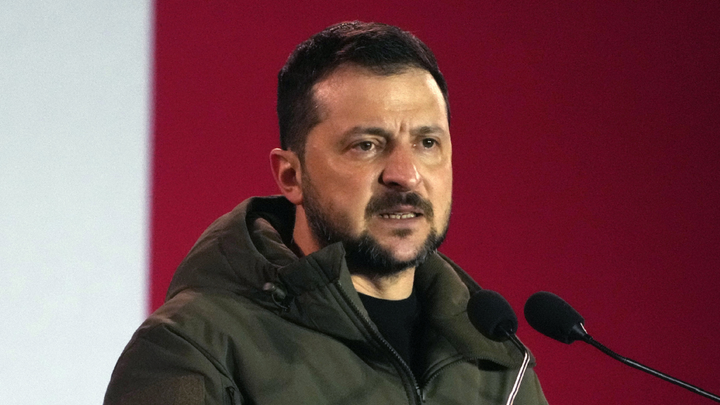The government could shut down if no deal is reached by Oct. 1.

Disagreements over providing aid to Ukraine have emerged as a critical issue with the potential to lead to a government shutdown if lawmakers fail to reach a funding agreement by the end of the fiscal year on September 30.
The allocation of U.S. funds to support Kyiv in its efforts against a Russian invasion has become a source of contention, particularly among a significant number of GOP lawmakers in the House and even some in the Senate.
In response to these disputes, the House Rules Committee convened an emergency meeting on Wednesday night to remove $300 million in Ukraine aid from the defense spending bill. This bill is one of the 12 essential pieces of legislation that lawmakers are working on to fund the government beyond September 30. This move followed reports from Fox News Digital that objections to the proposed funding for Ukraine were jeopardizing the passage of the bill.
Biden lied about never talking business with Hunter: GOP lawmaker
These lawmakers who objected to Ukraine aid have also raised concerns about its inclusion in the spending bill for the State Department and foreign operations. This funding remains in the bill and is currently facing the prospect of not passing.
In the Senate, the presence of $6 billion earmarked for Ukraine in a stopgap funding bill, referred to as a continuing resolution (CR), has made the bill unpalatable for the House, as stated by Speaker Kevin McCarthy of California.
Additionally, Senator Rand Paul of Kentucky has made a commitment to impede the progress of any CR that includes further aid for Kyiv’s efforts, indicating a potential obstacle in the Senate’s proceedings.
House and Senate lawmakers are under pressure to reach a funding agreement before midnight on Sunday to prevent a partial government shutdown.
It’s worth noting that a majority of Republicans in both chambers do support providing aid to Ukraine. Amendments aimed at halting or limiting these funds, which were introduced with the defense spending bill, were defeated by Democrats and received opposition from more than half of the GOP conference.
However, the dynamics in the House are distinct due to the GOP’s narrow majority, which grants a smaller faction of hardline conservatives a disproportionately significant influence over the rest of the party. This has led to a situation where some members, like Rep. Marjorie Taylor Greene of Georgia, have taken a stance against sending money to Ukraine, arguing for a focus on bringing peace to the country instead. Rep. Greene went as far as to vote against a procedural measure in line with her opposition to Ukraine aid.
The tensions surrounding the issue of Ukraine aid were highlighted when Ukrainian President Volodymyr Zelenskyy visited Capitol Hill earlier this month. Unlike his previous visit, he was not granted the opportunity to address a joint session of Congress.
Instead, President Zelenskyy met with congressional leaders and some lawmakers in the House. He also delivered a separate address to the Senate, emphasizing the significance and sensitivity of the topic at hand.

